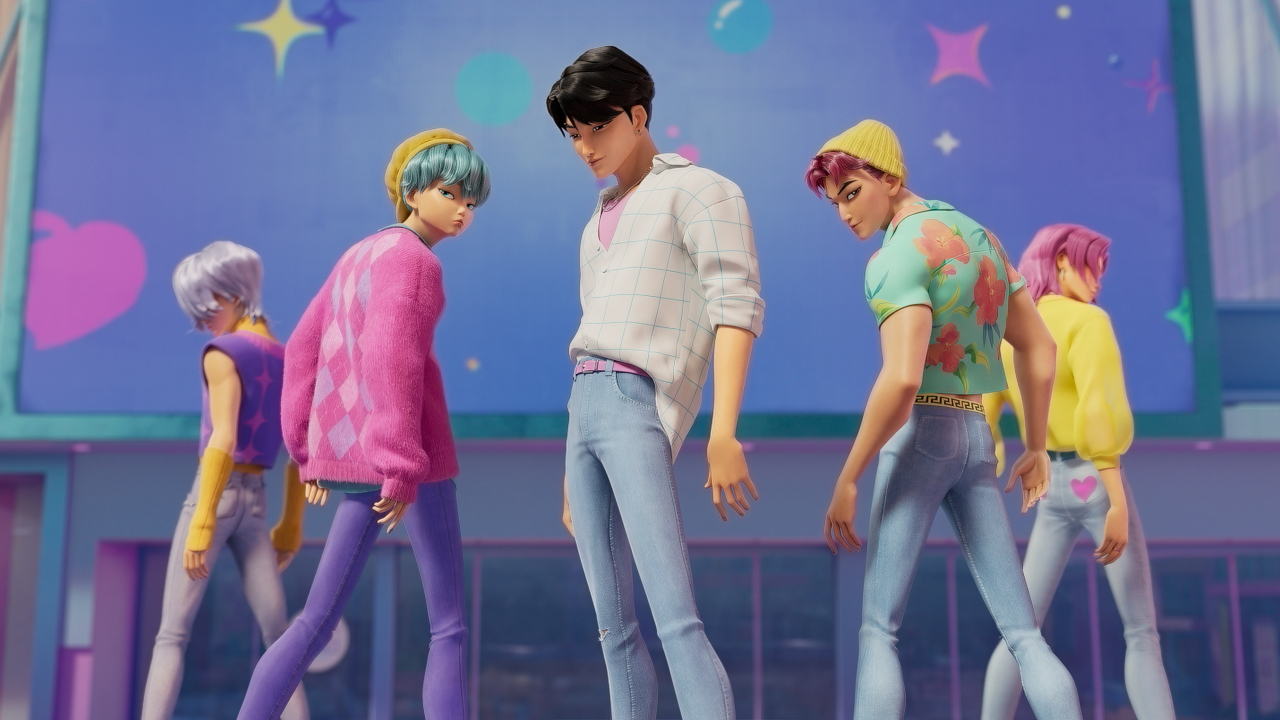Farewell To The Flash, The TV Show I've Been Covering For Literally My Entire CinemaBlend Career
After nearly a decade, The Flash’s race is finally done.
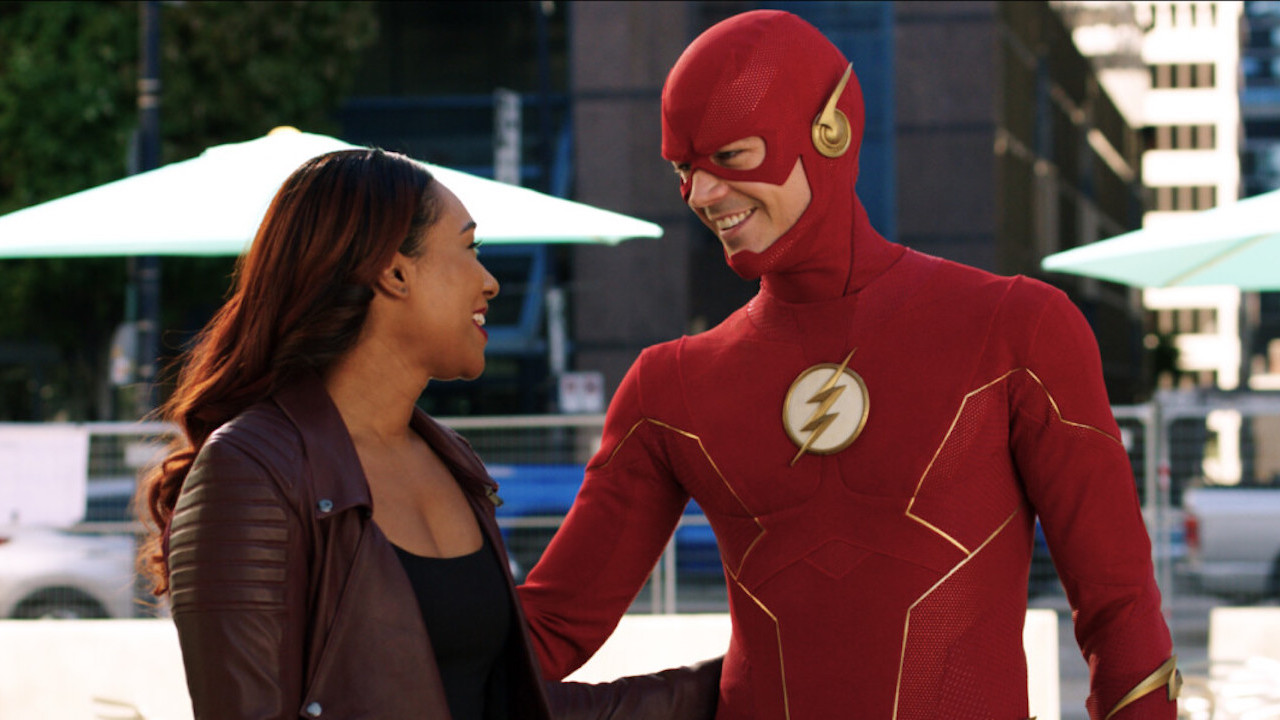
Your Daily Blend of Entertainment News
You are now subscribed
Your newsletter sign-up was successful
Today’s a bittersweet day for me on both personal and professional levels, because after nine seasons, The Flash is ending. Although I’ve known about the Scarlet Speedster since the late 1990s, I became a true fan of his after reading The Flash: Rebirth, followed by Flashpoint a few years later. So I was excited when it was announced that Flash would be getting his own TV show spinning out of Arrow, and followed along with it for the entirety of its run. But more importantly in this instance, I’ve also been covering The Flash for literally my entire CinemaBlend career, and that’s not an exaggeration.
I started writing for CinemaBlend on October 6, 2014, with my first article being about how the costumes for 2015’s Fantastic Four were going to be weirder than expected. Later that same day, I wrote about The Flash executive producer Geoff Johns discussing the possibility of Booster Gold appearing on the show (while that never came to pass, Donald Faison did play Booster in Legends of Tomorrow’s final episode.) The following say, the pilot episode premiered on The CW, as audiences reunited with Grant Gustin’s Barry Allen 10 months after his debut on Arrow and watched him battle the Clyde Mardon incarnation of Weather Wizard in his first outing as a superhero. Naturally The Flash’s second episode followed the week after, although that was the same day as it was announced that Ezra Miller would play Barry in the DC Extended Universe… but that’s a topic for another discussion.
I’ve been seeing a lot more chatter about The Flash during the course of Season 9, including many people sharing when they stopped watching the series. Did The Flash have its shares of misses over the years? Of course, as do most TV shows, and there are certainly aspects of The Flash I would have changed if given the opportunity. Overall though, I don’t regret the time I poured into watching this small screen saga unfold, so I’d like to look back on its origins and looking at what it will leave behind when all is said and done, just like my colleague Laura Hurley did when Arrow ended three years ago.
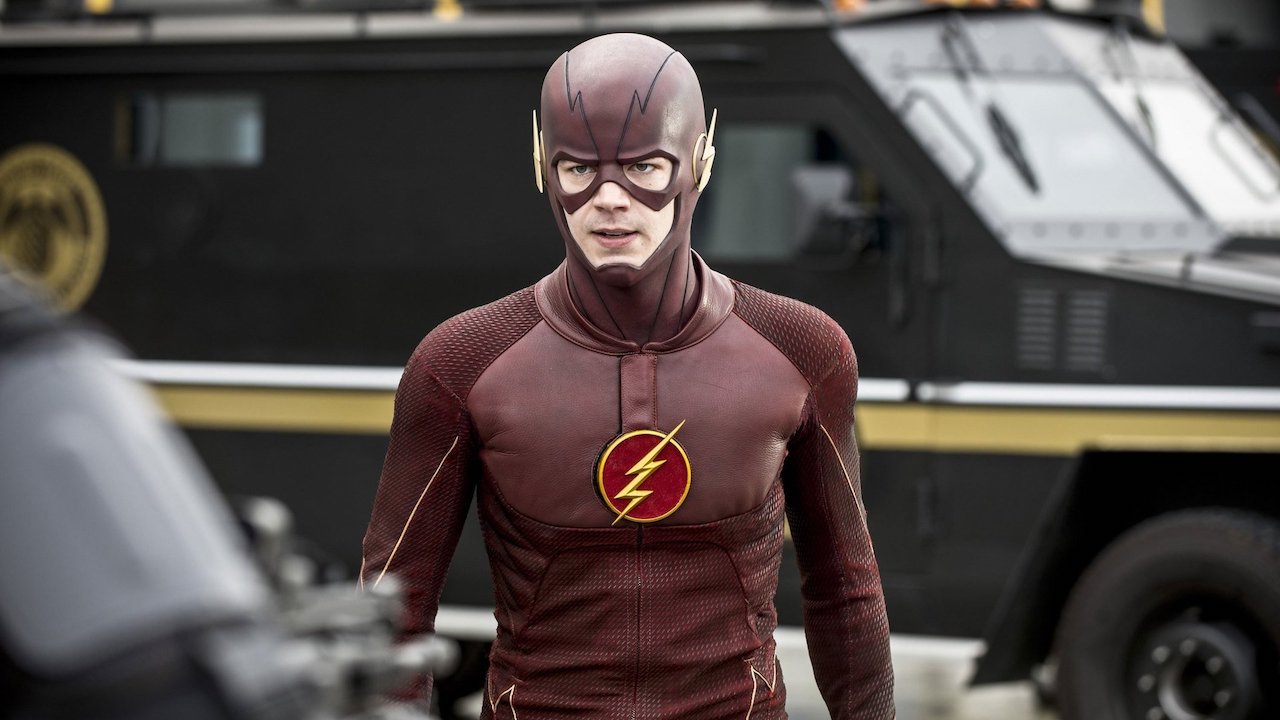
How The Flash Came To Be
The CW’s The Flash wasn’t the first TV show to go by that name, and even Smallville spotlighted the Flash mythology by having Bart Allen, a.k.a. Impulse, appear in a few episodes. However, it’s safe to say that this Arrow spinoff has been the general public’s biggest exposure to the Scarlet Speedster yet, though it will arguably soon be outdone by The Flash movie’s forthcoming release. Not to mention, while it didn’t launch the Arrowverse, that shared universe most certainly wouldn’t have become as popular as it did without The Flash’s existence.
Grant Gustin’s Barry Allen was introduced in the Arrow Season 2 episodes “The Scientist” and “Three Ghosts” with the express purpose of setting up a Flash TV series. This was a Barry who hadn’t gotten his powers yet, as he instead came to Starling City (as it was named then) to help Oliver, Diggle and Felicity investigate a strange crime. At this stage of Arrow, although the strength-enhancing Mirakuru serum has been featured, the show had yet to delve into truly fantastical superhero storytelling, instead still feeling like a spiritual successor to Christopher Nolan’s Dark Knight trilogy. But there’s no way to deliver a “gritty and grounded” take on The Flash, so once Barry was struck by lightning in Central City, that door to this universe getting more comic book-y was permanently opened.
Originally The Flash was going to get a backdoor pilot that aired later in Arrow Season 2, but by January 29, 2014, The CW ordered a traditional pilot, and the following May, it was picked up to series. Like Arrow, The Flash saw its title protagonist working as part of a team, with the original lineup consisting of Danielle Panabaker’s Caitlin Snow, Carlos Valdes’ Cisco Ramon and Tom Cavanagh’s Dr. Harrison Wells. With their help, Barry helped stop other meta-humans who’d been created the night S.T.A.R. Labs’ particle accelerator exploded in Central City. Unfortunately, it was revealed later in Season 1 that Wells was actually Eobard Thawne, a.k.a. Reverse-Flash, a speedster from the future who was the older Barry arch-nemesis and was the one who murdered his mother when he was a boy, yet was forced to orchestrate Barry’s transformation into The Flash in this new timeline because he needed his speed in order to return to his home time period.
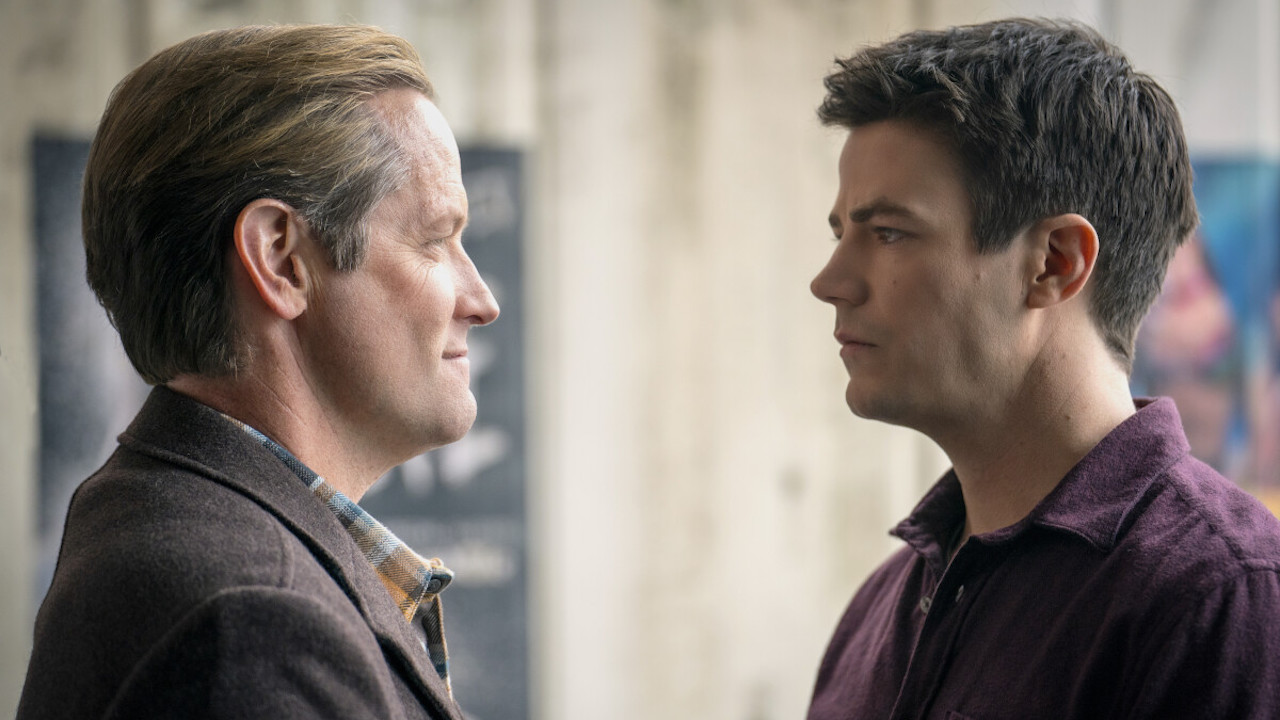
The Flash EP Explains How The Office, Lost And More Inspired The Show’s Series Finale
Other prominent characters introduced in The Flash Season 1 included Jesse L. Martin’s Joe West, a CCPD detective who took Barry in after his mother was killed and his father was sent to jail for the crime; Candice Patton’s Iris West, Joe’s daughter who would go on to found Central City Citizen Media and marry Barry; and Rick Cosnett’s Eddie Thawne, who killed himself in the Season 1 finale to erase Eobard, his descendant, from existence, but resurfaced in Season 9 as Cobalt Blue. But that was just the tip of the iceberg, with The Flash’s other notable characters including, but not limited to, Danielle Nicolet’s Cecile Horton, Keiynan Lonsdale’s Wally West, Hartley Sawyer’s Ralph Dibny, Kayla Compton’s Allegra Garcia, Brandon McKnight’s Chester P. Runk and Jessica Parker Kennedy’s Nora West-Allen. As nice bonuses, Cavanagh also played numerous Harrison Wells’ from other universes, and John Wesley Shipp, who played Barry Allen in the original Flash series, recurred as both Henry Allen and Jay Garrick.
Your Daily Blend of Entertainment News
From Zoom and Savitar to The Thinker and Bloodwork, The Flash threw a lot of dangerous foes at its starring heroes over the course of nearly a decade, not to mention all the threats that emerged during the various Arrowverse crossovers that aired from 2014-2019, giving Barry and the gang opportunities to fight alongside the protagonists from Arrow, Legends of Tomorrow, Supergirl, Batwoman and Black Lightning. In fact, this was those very crossovers (including “Crisis on Infinite Earths,” which saw Grant Gustin and Ezra Miller’s Barry Allens come face to face) and willingness to explore its outlandish source material that made The Flash a pretty good adaptation, which in turn often made it more of an enjoyable watch for me than Arrow, which more frequently than not didn’t adhere to the comics.
Along those lines, one thing that The Flash doesn’t get nearly as much love for as it should is its utilization of the multiverse. Sure, alternate realities had been explored before in shows like Star Trek and Fringe, but when it comes to the superhero genre, this show was far ahead of the curve, showing Barry and his allies interacting with/traveling to different Earths going back to 2015, long before the MCU and DCEU franchises started dipping into that pool. Frankly, even though The Flash movie is loosely based on Flashpoint, I wouldn’t be surprised if The Flash TV show’s success with the multiverse also played a role in the decision to have Ezra Miller’s Barry Allen team up with Michael Keaton’s Batman and Sasha Calle’s Supergirl in a different reality.
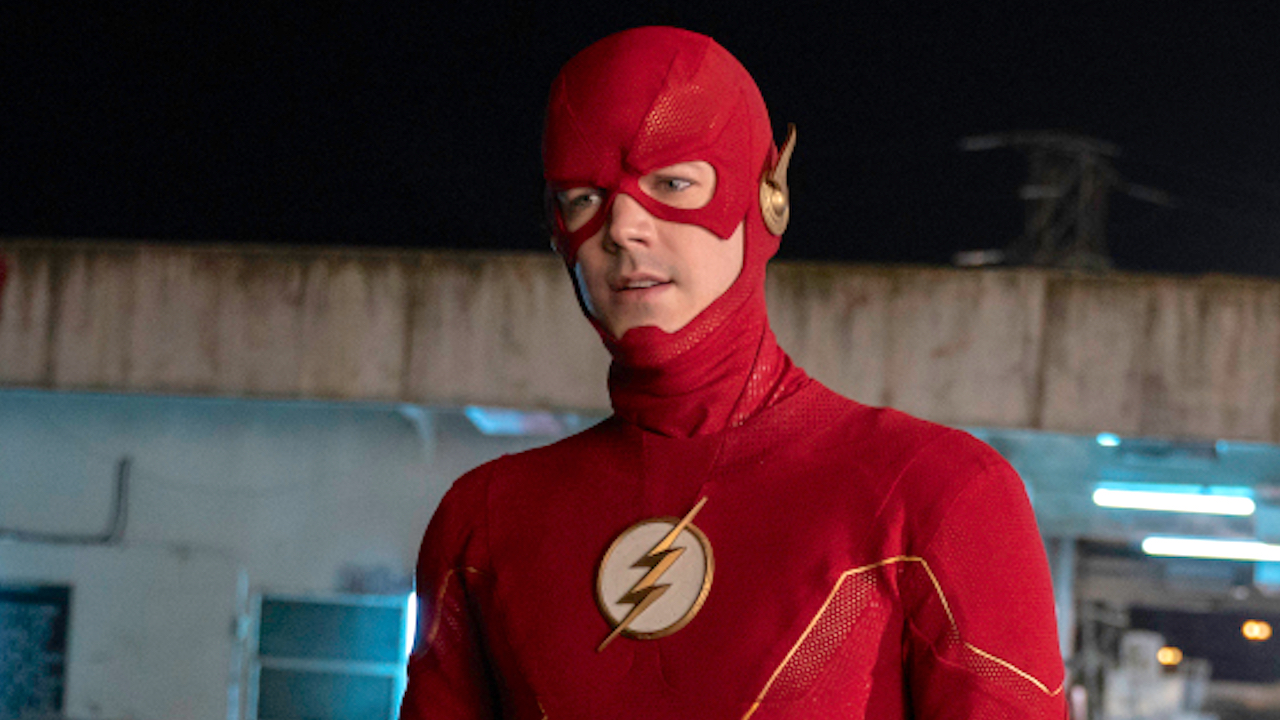
What The Flash Leaves Behind
As I mentioned earlier, The Flash wasn’t without its issues. Personally, I was disappointed with how the "God Complex" storyline in Season 7 turned out, as well as the fact that we never got the classic Rogues lineup on the show, i.e. Captain Cold, Heat Wave, Weather Wizard, Mirror Master, Trickster and Captain Boomerang, among others. But looking at the overall run, there are more positive than negative elements, and as such, I’d like to think The Flash leaves a lot of good behind as it ends.
For one thing, Grant Gustin shined as Barry Allen. Across nine seasons and numerous episodes of other shows, we watched the character go from a rookie superhero who had trouble planning ahead to a veteran crimefighter skilled at leading his team into battle. He effortlessly balanced comedy and drama, depending on what was called for, and I’m looking forward to seeing what he does next now that the red suit has been hung up. Sure, perhaps more people across the world will ultimately become more familiar with Ezra Miller’s Barry given that he’s leading his own blockbuster movie, but for a lot of people out there, Gustin will always be their definitive Flash.
Going back to an earlier point, it’s also doubtful the Arrowverse wouldn’t have become the genre force that it did without The Flash. Yes, without Arrow, this universe wouldn’t exist, but it was The Flash’s willingness to tell the kind of stories that that Arrow initially steered clear from that paved the way for these other spinoffs. Even Supergirl, which initially aired on CBS and developed as a standalone project, crossed over with The Flash in its first season, and if that hadn’t happened, there’s a good chance that Supergirl would have never been moved to The CW once its time on CBS was over. There’s only so much real estate Arrow could have covered by sticking to the “realistic” formula it initially abided by, but thanks to The Flash, so much more territory was opened up.
Then on a more personal level, I’m grateful for not just how much The Flash has boosted my appreciation for a character I was already really into, but how it also led me to meeting others who were passionate about the show and, as is the entire point of this piece, gave me plenty to write about on CinemaBlend. From castings to speculation, I enjoyed being able to talk about this show in a professional capacity, and even though I sadly never got to interview any talent from The Flash, it was nonetheless fun getting to chart the cast and crew’s journey in real time. I don’t have nearly as much time to rewatch my favorite TV shows anymore, but I know one day I’ll go back through The Flash, from “Pilot” to “A New World, Part Four,”whether it be with my Netflix subscription or springing for the complete series collection.
Now that I’ve gotten all this off my chest, there’s only one thing left to do: see what happens in The Flash series finale, which airs tonight at 8 pm ET on The CW. After that, join me in looking at the 2023 TV schedule to see what currently-airing shows are worth checking out afterwards, or see what upcoming DC TV shows are in development.
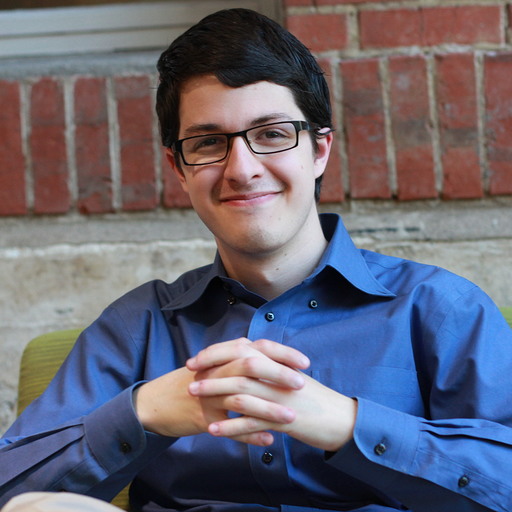
Connoisseur of Marvel, DC, Star Wars, John Wick, MonsterVerse and Doctor Who lore, Adam is a Senior Content Producer at CinemaBlend. He started working for the site back in late 2014 writing exclusively comic book movie and TV-related articles, and along with branching out into other genres, he also made the jump to editing. Along with his writing and editing duties, as well as interviewing creative talent from time to time, he also oversees the assignment of movie-related features. He graduated from the University of Oregon with a degree in Journalism, and he’s been sourced numerous times on Wikipedia. He's aware he looks like Harry Potter and Clark Kent.
